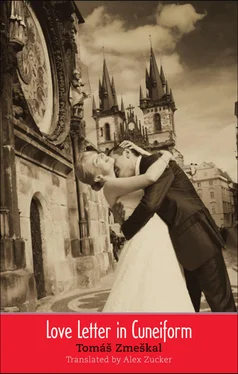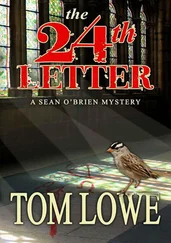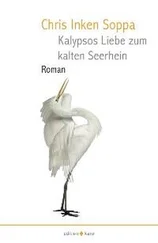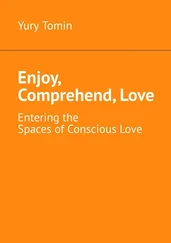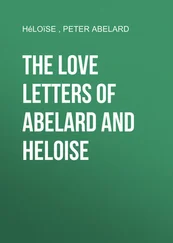“The theory of vitalism, also known as the theory of life force, was suppressed and swept under the carpet roughly three centuries ago, yet new insights into human consciousness have recently been unified with the latest findings in the field known as quantum mechanics, an unexpected and sudden development with compelling implications for the field of theology or divinity. As teachings on God have gradually been unified with teachings on the origin of the universe, the study of human consciousness has been unified with the study of the human soul. Now these findings, taken together, have enabled us to build the device. A device whose power is immeasurable, a device that underpins and frames our existence as individuals, as well as the principles of state and empire. The anthropic principle, that is, the idea that we see the universe the way it is because if it were different we would not be here to observe it, has been successfully unified with the no-boundary condition, which explains the infinity of the universe by the fact that the universe has no boundary in imaginary time.”
It took us several months to assemble the device. Meanwhile, the news that we were near putting it into operation spread throughout the city and its environs. Speculation of all sorts emerged. It was rumored that anyone who came within a certain proximity of the device felt a sensation of extraordinary pleasure. It was rumored that anyone who came within a certain distance experienced a feeling of incredible dread and suddenly grasped the meaning of the word only hazily explained in old encyclopedias under the heading hell . It was said that when one stood before the device, one could see not only one’s own future but the future of several nearby galaxies. It was said that when one stood behind the device, one could see not only one’s own past but the past of a large portion of the Milky Way. It was said that when one touched the device, one’s mind merged with the minds of one’s friends and enemies. Many things were said, and all that was said — whether fortunately or unfortunately — was true!
What we kept secret from all the authorities, however, was the main purpose of the device. It was revealed to us only little by little, bit by bit. Eleanor, our colleague from Aquitaine, a mixed land of French and English, was the first to grasp an inkling of its secret. She shared her conjecture with Master Matthias, and ultimately he shared it with me. Initially she was uneasy when Master Matthias told her he had let me in on her thinking concerning the device. Then, when we all tried it ourselves and everything that had been said about it turned out to be true, Eleanor came forward with Master Matthias and his assistant, and through a series of lengthy and detailed calculations convinced us there was much more to the device than we dared to admit. Their explanation involved a theory of grand unification, which merged weak and strong electromagnetic interactions, refuting the theory even as they confirmed it, then continuing with a discussion of the singularity of the idea and the phenomenon in space-time, whereby the curvature of space-time increases exponentially with the infinite value of human emotions.
When they concluded, a long, doleful silence spread over the group. I suspect many, like me, failed to grasp the details of the calculations, or the transmutations of superlight and superheavy particles in relation to the shrinkage of spatiotemporal fields. Yes, few could grasp the details, but the gist of it was clear. Still, no one dared imagine that the device could address the fundamental problem. Could it truly be the instrument of such grace? The room was quiet, the only sound the breathing of those present.
Eleanor believed the device had far greater powers than any before we had tested. She believed it was essentially a doomsday device.
After a period of time which I am unable to estimate, gradually we awoke from our trance and it was clear there was an unspoken question: Who would be the first to test this enticing theory? We took a quick vote, and the majority of the Committee for the Restoration of the Device was divided between Master Matthias and Eleanor. Two or three members were incapable of casting a vote, experiencing such a profound sense of happiness that we chose not to disturb them. The fact that both candidates had received the same number of votes presented us with a seemingly impossible situation. Then all of a sudden Professor Alexander Pazdera, who up until then had been one of those off in his own world, absently smiling, declared clearly and distinctly: “Let whoever is oldest go first. They deserve it most.” That hadn’t occurred to any of us. No one had bothered to count their age since … centuries ago. Yet again, Alexander had demonstrated his uncommon depth of understanding. His proposal was accepted by the Committee, along with Master Matthias and our colleague Eleanor.
Master Matthias went and stood on one of the two foci of the ellipse that formed part of the device. Then the device was set in motion and Master Matthias disappeared before our eyes. We heard some noises that to me sounded like a snatch of a plaintive melody, although later someone said it was the sound of a soul leaving the body. I don’t know, it seems to me that each of us heard something different. And then it happened. His body lay before us. Master Matthias was dead. We all wept with emotion and joy. Yes, I can say that it was the happiest day of my life.
It was the day we were finally rid of our accursed immortality. Our accursed, despicable immortality, which had been with us, like the plague, for so many hundreds of years, afflicting us the way the plague once afflicted our ancestors, back in the now nearly inscrutably dark age of the cathedrals. For thousands of years our accursed ancestors lived as parasites on life, having perfected their lives and in so doing ours as well — unfortunately, to the point that they achieved what they called absolute valorization . The word immortality was no longer in use by that time, no one would have understood it. Humankind had become immortal. For generations it was no longer possible to die of disease, injury, ill will, or suicide. Humankind had achieved absolute valorization, a goal it had staked out for itself in the dreadful gloom of ancient times. Thus did we become the monstrous descendants of monsters. And thus did we now finally cease to be immortal creatures and once again became mortal, which is to say human.
They gave their boy the name Kryštof, the mildest male name that Alice was willing to allow. In celebration of not only their love but the joining of their families, Maximilian had suggested he be named after one of his ancestors who had made their mark on history. The problem was most of the names were of Polish or German origin, and Alice didn’t see any reason to complicate their son’s life with a name that even his parents had difficulty pronouncing. So Kryštof is what stuck. To Maximilian the name sounded both moderately ponderously Baroque and at the same time sufficiently lofty, and so ultimately, after several groaningly polite arguments he conceded, reconciling himself to the name of Christ’s carrier, one of the Fourteen Holy Helpers. Alice was upset that her father and mother had broken up for no apparent reason, but most of her attention was swallowed up by the child. Nor could it have escaped anyone’s notice that despite his loud, boisterous nature, Maximilian had begun to act differently toward Alice. He had become a father, which filled him with joy but also brought back a vague, fuzzy drove of memories and feelings, regrouping and swarming, searching for their leader, like circling swallows weaving Persian motifs into the heavy carpets of memory. Flocks of memories, assumptions, and inklings were returning home. Remembering his parents, the buds of a kind of understanding began to ripen inside of Maximilian. His employment had ceased to be enjoyable and begun to make him tired, and he would wake up sometimes with his forehead coated in the pearly sweat of nightmarish dreams, whose content, however, he could not recall. Maximilian was unhappy. He wasn’t satisfied with himself, feeling more than ever before like a stranger in his own time. He had married Alice out of the deepest love for her, and she had already fulfilled part of the unwritten marriage agreement by bringing their son into their world, but what about him? What was expected of him? He wasn’t sure, and he wasn’t happy about the fact that he wasn’t sure. He was as sleep-deprived as she was from getting up to feed the child, and the only thing that still provided him any remnant of self-esteem was the fact that every afternoon he would lock himself in his office, take the phone off the hook, sit down in the office’s one armchair, and fall asleep.
Читать дальше
